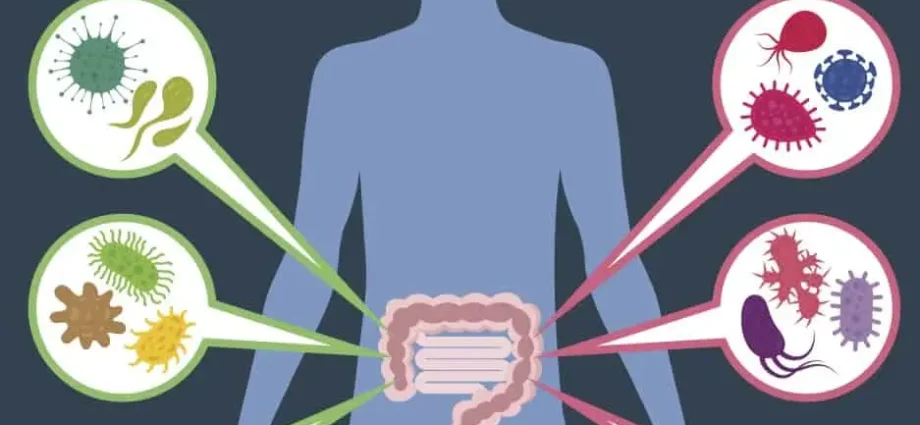Hundreds of trillions of microbes live in everyone’s gastrointestinal tract. And this microbiome is necessary for the health of not only the intestines, but the whole organism, and not only physical, but also emotional. Scientific studies have shown that bacteria can give people who are depressed, the will to live.
Here are four physical manifestations of intestinal microflora.
Body fat
Friendly gut bacteria control the body’s response to carbohydrates, converting them into fat or energy. Since obesity is also associated with a lack of bacterial diversity in the gut, microbiome diversification is a key factor in reducing body fat. Altering the microbiota can improve the fermentation of carbohydrates, making them easier to burn and lowering the risk of obesity and type II diabetes. How to do it? Eat a variety of plant foods, including fermented foods, as much as possible.
Inflammation
The gut contains 70% of the body’s immune tissue, so it plays a key role in immune responses and regulation of inflammation. In leaky gut syndrome, when large protein molecules enter the bloodstream, the body activates an immune response that can cause inflammation.
How to cure leaky gut syndrome? This is a tricky question, but you can increase your chances of restoring gut health by first improving your diet in this way: consume probiotics: they will increase the number of healthy bacteria. And glutamine (a nutrient rich in bone broth) will help rebuild the intestinal wall. To reduce inflammation, you need omega-3 fatty acids (wild salmon and fish oil, flax and chia seeds).
Brain function and mental health
Some scientists call the gut the “second brain”. Stress is often accompanied by bloating and indigestion. One reason is that 90% of serotonin (a neurotransmitter responsible for mood) is produced in the intestines.
More and more scientists are investigating the ability of fermented foods and probiotics to control anxiety and treat depression. So sauerkraut, kimchi, miso, yogurt, soft cheeses, kefir, and kombucha can boost mental health.
Cancer risk
A study published in 2013 in Journal of Cancer Researchshowed a link between the types of gut microbiota and the likelihood of developing lymphoma. According to another study from the same year, some gut bacteria can cause stomach cancer by interfering with the immune system’s ability to regulate inflammation in the stomach lining. Even if cancer has already been diagnosed, gut bacteria can interfere with the effectiveness of immunotherapy and chemotherapy.
Therefore, eat more probiotics, as well as prebiotics rich in soluble fiber (oatmeal, lentils, beans and fruits): these foods ferment in the colon and feed healthy bacteria. If possible, avoid antibiotics, which not only kill bad bacteria, but often kill our “friends” as well.










